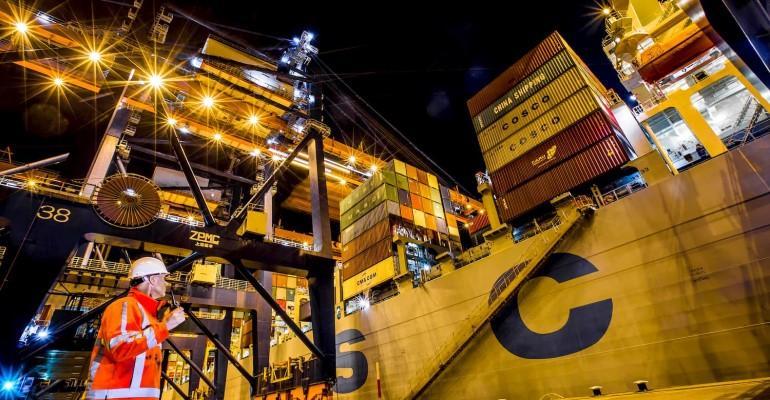The port said its 438.8m tonnes of throughput compared to 467.4m tonnes in 2022, with coal, dry bulk and containers accounting for most of the volume loss. Looking ahead, it expects 2024 to be another ‘unpredictable’ year.
Dry bulk throughput was down 11.8% on-year, led by coal which fell by 20.3% to 23.1m tonnes as Europe’s energy crisis softened and demand eased for coal-fired power production. The ports ‘other dry bulk’ segment fell by 24.7% when accounted for erroneous declarations in 2022.
There were some bright spots in dry bulk, with agribulk up 3.0% and maize imports rising by 50% owing to weather effects causing crop failures in Europe. Crude oil throughput was also 9.9% higher at 28.1m tonnes.
In the liquid bulk segment, an overall 3.4% drop was fuelled by mineral oil products falling by 6.5%, mainly because of the decline in the throughput of fuel oil and naphtha. Gas oil throughput was higher than that of fuel oil for the first time, the port said.
Demand for LNG remained strong with a 3.7% increase to 11.9m tonnes as Europe continues to offset the loss of Russian pipeline imports due to the war in Ukraine. Stock reductions and lower demand brought other liquid wet bulk down 5.9% to 36.1m tonnes.
Container throughput fell by 6.8% in weight to 130.1m tonnes; and by 7.0% in teu terms to 13.4m teu. The port said that the volatility seen in the container market since COVID has continued with geopolitical and other disruptions. For Rotterdam, a decline that began in 2022 continued in 2023 as expected and was attributed to lower consumption, lower European production and the discontinuation of volumes to and from sanction-hit Russia. A 1.0% increase in container ship calls was not reflected in their volumes, which dropped 7.8%, while ro-ro traffic fell by 5.0% to 29.0m tonnes.
Despite the difficult picture for cargo throughput, port revenues rose by 1.9% to €841.5m.
The Port of Rotterdam Authority pitched 2023 as a year of investment in its operations and sustainability with major investment decisions made for the port and its logistics chains. Investment totaled €295.4m, almost 15% more than in 2022.
Boudewijn Siemons, CEO of the Port of Rotterdam Authority, said: “We made the final investment decision for the construction of the CO2 transport and storage project, Porthos. Construction work also began on the national hydrogen network in the port of Rotterdam. And we celebrated a number of significant developments in the logistics segment this year, such as the announcement of the expansions of the APMT and RWG container terminals, and the opening of the CER. All these developments will take us a step closer to a successful and future-resilient port and industrial complex.”
Copyright © 2024. All rights reserved. Seatrade, a trading name of Informa Markets (UK) Limited.
Add Seatrade Maritime News to your Google News feed.  |

